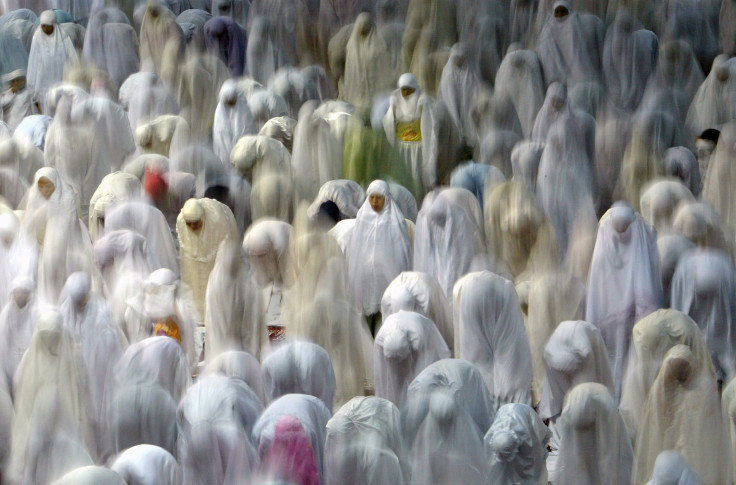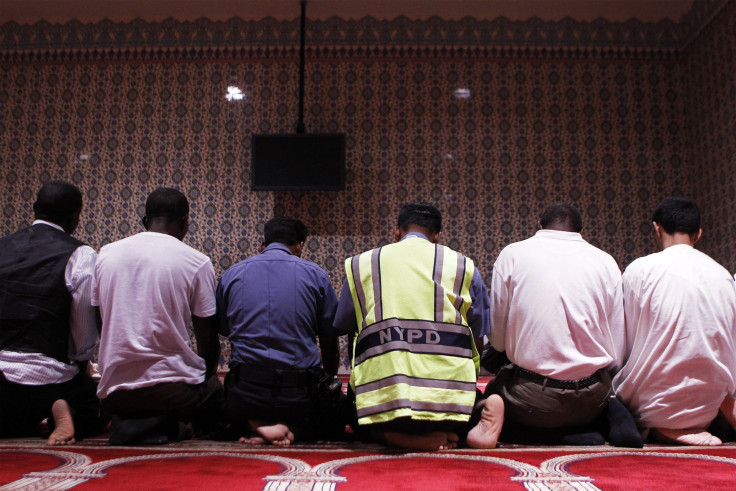Donald Trump Muslim Immigration Ban: How Many Muslims Live In America? Millions Could Be Affected By GOP Travel Rule

Donald Trump’s ban on all Muslims entering the United States could prevent over three million American citizens from traveling freely to and from their home country. That’s because, as of the latest estimates in 2016, there are over 3.3 million Muslims already living throughout the nation – and that figure could more than double by 2050.
The Muslim faith has been an established religion in the U.S. since the birth of the nation. Historians suggest Portuguese Muslims helped Christopher Columbus navigate his journey to the New World, though the extent of which they guided the Italian colonizer remains debated. The growth and expansion of Arab communities flourished throughout the 1930s, as Middle Eastern immigrants built hundreds of mosques across the country. A relaxed attitude toward immigration in the early 1950s brought a new wave of new Muslim immigrants from overseas, including from Africa, Asia and Latin America.
Most popular on @FactTank: Muslims and Islam: Key findings in the U.S. and around the world https://t.co/AsIHUkQ6Yo pic.twitter.com/Evshuiq6iA
— Pew Research Center (@pewresearch) June 19, 2016
Christianity is the most popular religion in the country, with over 70 percent of those surveyed by the Pew Research Center identifying as a member of the world’s biggest religion. Meanwhile, Islam comprises 23 percent of the global population, and is the second-biggest religion throughout the world. It’s also the fastest growing major religion, including in the U.S., where the share of Christians is in decline.
The public’s perception of Islam has shifted in recent decades, with surges in Islamophobia and an unprecedented rise in hate crimes being spurred across the country. Nine days after the terror attacks on Sept. 11, 2001, former President George W. Bush urged Americans to look past their faith and come together as one nation in a televised statement.
"I also want to speak tonight directly to Muslims throughout the world. We respect your faith. It's practiced freely by many millions of Americans and by millions more in countries that America counts as friends," Bush said at the time. "Its teachings are good and peaceful, and those who commit evil in the name of Allah blaspheme the name of Allah. The terrorists are traitors to their own faith, trying, in effect, to hijack Islam itself. The enemy of America is not our many Muslim friends. It is not our many Arab friends. Our enemy is a radical network of terrorists and every government that supports them."

The former president’s call for unity was seen as at the time as a progressive move from a Republican leader. But that rhetoric has starkly changed, with the next president calling on the campaign trail for a ban on all Muslims coming into the U.S., "until our country’s representatives can figure out what the hell is going on," Trump has said.
The ban would include Muslim Americans from reentering the nation. Despite some flip-flopping on the issue from Trump and his campaign surrogates, the campaign promise was a corner-stone to his election, and remains on his website. It remains unclear how a Trump administration would enact such a policy.
Today, with over 1,500 mosques and Islamic centers throughout America, many Muslims feel they are being targeted by Trump and some politicians for practicing their faith.
"I've been a victim of racism since the 9/11 attacks, but I can honestly say that since Trump started his campaign, I've encountered discrimination at a much larger rate," Numa Rehmani, a Muslim American born in Pakistan, previously told International Business Times after the election. "The alarming number of his voters that support him for racist, sexist, xenophobic, and homophobic reasons, still needs to be addressed."
© Copyright IBTimes 2025. All rights reserved.






















